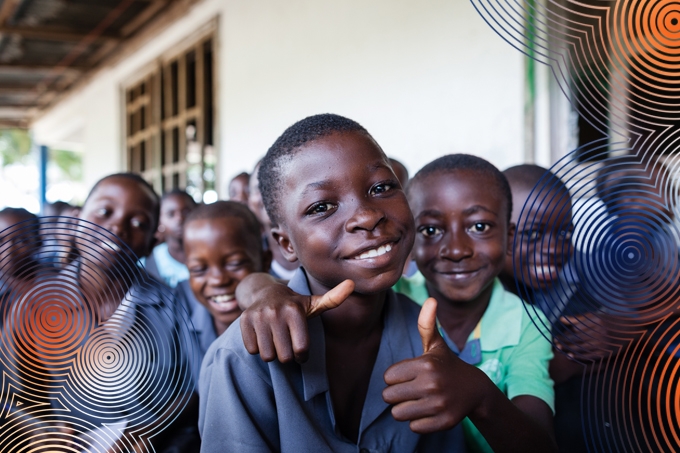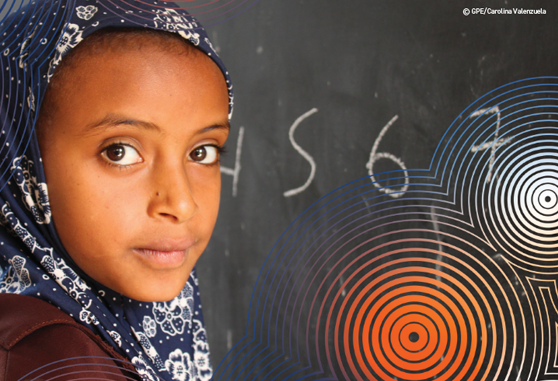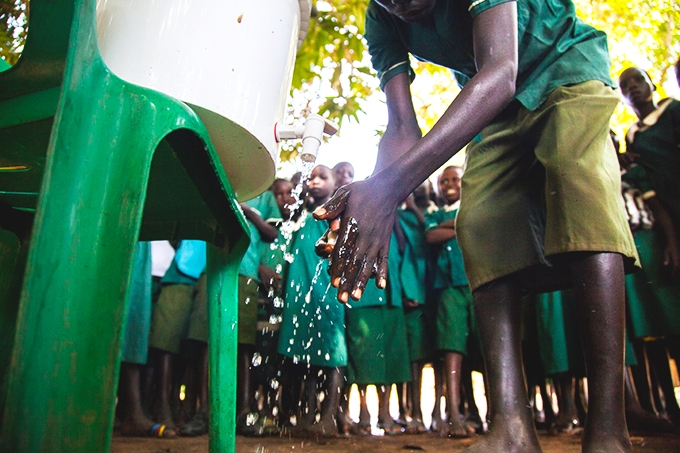Investing in advocacy for learning equity
Education Out Loud aims to support civil society engagement in education sector planning, dialogue and monitoring; strengthen transparency and accountability in education; and create a stronger enabling environment for civil society advocacy at global and national levels. This new call for proposals is open from December 9th to January 31st for applications to support transnational advocacy.
Education Out Loud’s funding for transnational advocacy promises to open the pathway for better, more effective education advocacy, accountability and engagement by bringing together country-level and global-level actors.
The success of this new fund tops our wish list for the New Year: it has the potential to spark a 21st century campaign for learning equity – a campaign that re-establishes government and intergovernmental accountability for the right to education; and that inspires citizens, everywhere, to realize their right to learn.
Why should we care about advocacy?
GPE has a long history of engaging with civil society in the effort to strengthen national educational systems, to ensure that they are properly financed, and focused on learning equity and on the needs of the most marginal and vulnerable populations (Mundy 2012). Representatives from civil society - north and south, NGOs and teacher organizations – play an important role in GPE’s Board and governance at the global level, and in GPE-supported sector planning, joint sector reviews and dialogue at the national level.
Between 2009 and 2018, GPE became a leader in financing civil society education coalitions in over 60 countries, under the Civil Society Education Fund, a program managed by the Global Campaign for Education. It has also funded new approaches for engaging civil society, through a pilot initiative with Education International and UNESCO on engaging teacher organizations in sector dialogue; and through novel initiatives on out-of-school children and school report cards called Data Must Speak co-funded by UNICEF and Hewlett Foundation.
Citizen voices must be heard
Despite the strong engagement with civil society by GPE and other international actors, there is so much more to be done. As organizations like Civicus and Afrobarometer highlight, civic space in many parts of the world is closing, with governments narrowing basic freedoms of speech and association.
Information technologies – which can support rapid, wide engagement of citizens in monitoring and accountability – also can be easily hijacked leading to the distortion of citizen voice in national politics. With limited outlets for citizen voice, and ever larger global challenges, it is no surprise to see a rising wave of civic unrest and citizen protest around the world.
GPE’s charter and strategy express the ideal of “mutual accountability”; and civil society participation in national education policy dialogue forms a core element of GPE’s operational model. Yet GPE’s recent country evaluations and results reports tell us that although members of civil society are increasingly engaged in national education sector planning and joint sector review processes, sector dialogue and monitoring are too often ineffective. Education plans are not being translated into reality; and governments are often not held accountable for ensuring that all children realize their right to learn.
The result is that almost 75 years since the first United Nations commitment to universal education, many children are schooled but not learning; and the numbers of adults without foundational literacy remain stubbornly high.
That is why Education Out Loud’s support for transnational advocacy is so important. Innovative national social accountability experiments such as the People’s Action for Learning network, are supporting citizens to monitor education outcomes nationally. What makes Education Out Loud stand out is that it seeks to ensure that not only are governments more accountable to their citizens, but that global and regional policy agendas are also more effectively addressing the challenges and realities of people at the community level.
What will Education Out Loud do?
Recent research suggests areas where a transnational approach can be most effective – for example, it can play a critical role in ensuring that civil society is able to mount legal challenges when education rights of the poor and marginalized are abrogated (Norrag 2018; Rosser and Joshi 2018); it can support better access to/use of information for accountability (Devarajan and Khemani 2016); it can build political pressure that reinforces national efforts by civil society to assess early literacy (R4D 2014); and help galvanize political reformers and allies at the “top” to form alliances with civil society actors mobilizing from below (Fox 2015; UNESCO 2018).
Education Out Loud will invest in efforts to leverage national civil society expertise to inform and influence international and cross-national policy agendas; and support international civil society to help hold open national space for citizen-led advocacy and accountability.
This formula – what political scientists call a “boomerang” approach – has effectively contributed to such historical changes as female suffrage, the abolition of slavery, and advances in global efforts to address HIV/AIDs (Finnemore and Sikkink, 1998; Keck and Sikkink 2014).
At its crux, Education Out Loud aims to support civil society accountability alliances that connect local, sub-national, national and international actors together to catalyze the delivery of stronger education outcomes for all children and youth.
And because we still have much to learn about how to do this well, Education Out Loud emphasizes the importance of capacity development, experimentation, knowledge, and the use of evidence in the proposals it will fund.
This new funding window complements two other Education Out Loud grant streams – for national coalitions and social accountability initiatives – with the aim of investing in a renewed multi-level civil society accountability eco-system capable of driving the vision of universal quality education for all children.
For more information on Education Out Loud and the current call for proposals, please visit GPE’s Education Out Loud webpage.
------
Karen Mundy is a Professor of International and Comparative Education at the University of Toronto, and formerly Chief Technical Officer at the Global Partnership for Education.
Sarah Beardmore is the Senior Policy and Strategy Specialist at the Global Partnership for Education and Team Lead for Education Out Loud.
REFERENCES
Fox, J. A. (2015). Social accountability: what does the evidence really say?. World Development, 72, 346-361. https://www.sciencedirect.com/science/article/pii/S0305750X15000704
Devarajan, Shantayanan; Khemani, Stuti. 2016. If politics is the problem, how can external actors be part of the solution ? (English). Policy Research working paper; no. WPS 7761. Washington, D.C. : World Bank Group. http://documents.worldbank.org/curated/en/906091469456194816/If-politic…
Finnemore, M., & Sikkink, K. (1998). International norm dynamics and political change. International organization, 52(4), 887-917. https://www.jstor.org/stable/2601361?seq=1
Keck, M. E., & Sikkink, K. (2014). Activists beyond borders: Advocacy networks in international politics. Cornell University Press. https://books.google.ca/books/about/Activists_Beyond_Borders.html?id=y-…
Mundy, K. (2008). Civil Society and its Role in the Achievement and Governance of Education for All. Background paper for the Education For All Global Monitoring Report, 2009. Paris: UNESCO. https://unesdoc.unesco.org/ark:/48223/pf0000178020.locale=en
Mundy, K. (2012). The global campaign for education and the realization of “Education for All”. In Campaigning for"" Education for all"" (pp. 17-30). Brill Sense.
NORRAG. 2018. NORRAG_special-issue-01_Right to education movements and policies_EN_2018.pdf
R4D. 2015. Bringing Learning to Light: The Role of Citizen-led Assessments in Shifting the Education Agenda. Washington DC: Results for Development. https://www.r4d.org/projects/evaluating-citizen-led-assessments-learnin…
Rosser, Andrew; Joshi, Anuradha. 2018. Using courts to realize education rights : reflections from India and Indonesia (English). Policy Research working paper; no. WPS 8448. Washington, D.C. : World Bank Group. http://documents.worldbank.org/curated/en/430461526912602601/Using-cour…
Serhan, Y. November 19,2019. The Common Element Uniting Worldwide Protests. The Atlantic. https://www.theatlantic.com/international/archive/2019/11/leaderless-pr…
UNESCO. 2018. Global Education Monitoring Report: Accountability in Education – Meeting our committments. Paris: UNESCO. https://unesdoc.unesco.org/ark:/48223/pf0000259338


